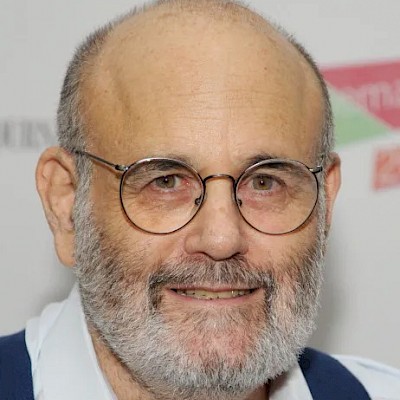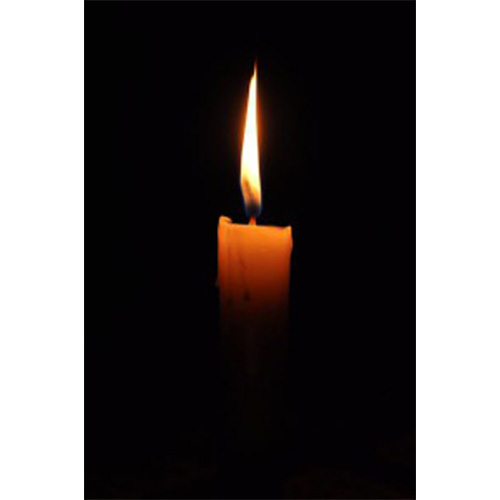His dyspeptic morning show helped make WBAI-FM in New York a vibrant, eccentric, alternative radio haven. “I was the first angry man in morning radio,” he said.
Larry Josephson, a cranky practitioner of free-form radio on noncommercial WBAI-FM in New York who helped shape the station into a vibrant, eccentric, alternative radio haven, died on Wednesday in Manhattan. He was 83.
His death, at a nursing facility, was most likely caused by complications of Parkinson’s disease, said his daughter, Jennie Josephson.
Mr. Josephson, who later in his career produced and hosted public radio programs, mixed personal confession, satire, political talk, phone calls, music and puns in his morning program. He was considered a pillar of the station, along with his fellow hosts Bob Fass and Steve Post.
“But I was the first angry person in morning radio, and it was genuine,” Mr. Josephson told Newsday in 1989. “I couldn’t get used to getting up at 5 a.m., so, on the air, I’d slam down the telephone, throw fits, be late and be guilty that I was late.”
He added: “Today, Howard Stern is doing a bad imitation of ’60s me and getting a million dollars a year for it. I am getting nothing for ’90s me.” (He never earned much in public radio and died with very little money, his daughter said.)
Marty Goldensohn, a former news director at WBAI, said in a telephone interview that Mr. Josephson had been an independent thinker who “was not simplistic in his embrace of progressive ideas.”
“He didn’t go for rightist or leftist claptrap,” he said.
Soon after Mr. Josephson began hosting his show, “In the Beginning,” in 1966, The New York Times radio and television critic Jack Gould described him as “really less a disc jockey than an aural happening.”
He was inspired, for example, to play the Beatles song “Lady Madonna” over and over for two hours after its release in 1968, and to spend two days playing every available recording of “Celeste Aida,” from the first act of Verdi’s opera “Aida.”
Mr. Josephson opened one of his shows in 1967 with a version of “The Darktown Strutters’ Ball” and declaring over it: “From the Chutzpah Room of the Hotel Sinai, it’s the music of Gamal Abdel Nasser and his Orchestra. How ’bout that, peace fans!”
Frank Millspaugh, a general manager of the station in the 1960s and ’70s, said listeners had empathized with Mr. Josephson’s eternal grumbling about waking up early. But some board members of the Pacifica Foundation, which owns the station, were displeased with the countercultural tone of Mr. Josephson, Mr. Fass and Mr. Post.
“They wanted a more serious, more respectful sound to the station,” Mr. Millspaugh said in a phone interview. But when they understood how effective those hosts were in raising money for the station, “they softened their criticism.”
In the mid-1970s, Mr. Josephson served for two years as the general manager of WBAI, which routinely operated on a shoestring. During one urgent financial crisis, the station turned to listeners to raise $56,000 to meet its monthly expenses. Within four days, $25,800 had poured in, most of it cash.
“We will survive,” Mr. Josephson told The Daily News in 1976. “We have to raise more money and spend less. It’s just like New York City,” which was dealing with a much larger financial crisis of its own at the time.
Norman Lawrence Josephson was born on May 12, 1939, in Los Angeles. His father, Adrian, at one point owned a woodworking company; his mother, Marian (Tyre) Josephson, was a homemaker.
Larry had loved radio since childhood but did not initially pursue work in it. Instead, he enrolled at the University of California, Berkeley, and studied linguistics, then went to work for I.B.M. as a computer engineer in the New York area. (He did not finish his bachelor’s degree until 1973.) He began volunteering at WBAI in the 1960s and was hired to host the morning show in 1966 because, he said, the station couldn’t find anyone else who would wake up that early.
“I’m a night person myself,” he told The New Yorker in a short profile in 1967, “and the only conscious position I had was to be Against the Morning. What I didn’t realize was that there was a tremendous audience out there — I don’t know how many millions — with a tremendous need for someone to be natural, to be grumpy.”
He left WBAI in 1972 and hosted a program at KPFA, a Berkeley radio station also owned by Pacifica, before returning to WBAI in about 1974. He stayed for several more years, hosting “Bourgeois Liberation” on Sunday mornings before becoming an independent producer.
Mr. Josephson helped revive the comedy team of Bob and Ray by producing their syndicated “Bob and Ray Public Radio Show” and their Carnegie Hall shows in the 1980s. He also produced audiocassettes and CDs of their best routines.
“We’re doing this because I think they should be on radio,” Mr. Josephson told The Associated Press in 1984. “It’s as much for radio as for Bob and Ray. They need each other.”
Over the next two decades, he hosted and produced “Modern Times,” a national call-in show that was distributed by American Public Radio; “Bridges,” on which he interviewed conservatives like Milton Friedman, Charles Murray, Ralph Reed and Norman Podhoretz; and “Only in America: The Story of American Jews,” an eight-part documentary series whose guests included the Supreme Court associate justice Ruth Bader Ginsburg.
Mr. Josephson produced nearly all of his post-WBAI work from a radio studio that he built in the third bedroom of his Manhattan apartment. He derived income by renting it out to others with projects to pursue, among them the BBC, the Boston Radio station WBUR, Al Gore, Samuel L. Jackson, Garrison Keillor, the CBS newsman Ed Bradley and the Rolling Stones.
The actor Alec Baldwin wrote in an email how pleased he had been to find a studio one block from his apartment. “I recorded countless projects there,” he said, including his podcast, “Here’s the Thing,” “and found Larry to be not just a great historical resource of all things related to radio but a lovely man as well.”
In 2012 Mr. Josephson performed a one-man, one-performance show, “An Inconvenient Jew: My Life in Radio,” at the Cornelia Street Cafe in Greenwich Village.
In 2018 he fractured a vertebra and needed spinal fusion surgery, prompting him, because of his precarious finances, to start a GoFundMe campaign. It raised nearly $28,000 to help pay for a home health attendant.
In addition to his daughter, Jennie, he is survived by his stepdaughter, Rebecca Josephson; his stepson, Gregory Alker; his sister, Susan Josephson; and two grandchildren. His marriages to Charity Alker and Valerie Magyar ended in divorce.
Mr. Josephson said in 1989 that public radio had let him say nearly everything he wanted.
“When push comes to shove,” he told Newsday, “I’d rather work for nothing and do exactly what I want without any interference from vice presidents or format experts.”
Richard Sandomir is an obituaries writer. He previously wrote about sports media and sports business. He is also the author of several books, including “The Pride of the Yankees: Lou Gehrig, Gary Cooper and the Making of a Classic.”





